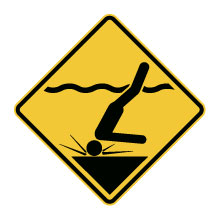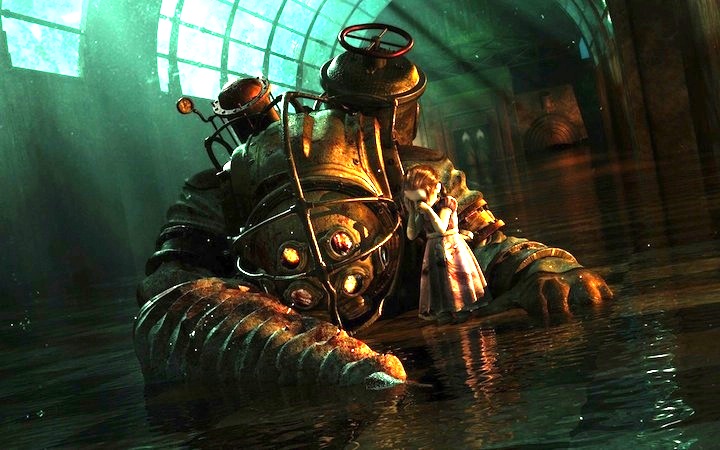Poor communication is not a substitute for depth. If an idea cannot be adequately communicated such that it can be understood without ambiguity, it’s either not a good idea or it’s not being expressed well. In a similar vein, not telling half of a story and implying that there’s ever so much more to be told, but not paying that off is BAD STORYTELLING.
It’s worth noting that there’s a difference between “telling half a story” and “leaving details to the imagination”. Star Wars is an incredible example of the latter– it presents a complete story in a setting, but there are details that hint at a larger universe but aren’t laid out explicitly. These details are entirely unrelated to the story, but they enrich the setting and leave room for the imagination to play, without compromising the storytelling.
A great example of the former is a game I recently finished: Cradle. It presents an incredibly compelling world, and a mystery of identity. What is this world? Who are you? What’s going on here? It’s presented as a compelling mystery, with you collecting scraps in order to put it all together. It builds and builds, answering questions with new questions and hinting at ever larger pieces of an overall story. Then, it ends, paying off none of its questions and only leaving more unanswered ones in its wake. The best you can hope for is to piece together some semblance of a story or an ending from bits and pieces, until you’re satisfied that whatever you came up with is acceptable. Essentially, you can write the rest of the story for yourself, doing the creator’s work, to complete the job left unfinished.
This kind of writing tends to attract a cult following, that will describe it as “genius” because it is incomprehensible, and “intelligent” because it “forces the audience to think”. The hardest part of a story to write, especially one that’s a mystery, is the ending. Skipping that part robs the audience of the payoff the rest of the story is trying to set up. It’s the difference between a sudden plot twist that makes perfect sense in retrospect and a breakout of deus ex machina, where suddenly things change or get resolved out of nowhere. If the culprit in the mystery is some random character that doesn’t appear in the story until the “big reveal”, it’s a pretty lame mystery. If the last part of the mystery is “I know exactly who did it! I’ll tell you when we get there,” and then you roll credits, that’s also a pretty lame mystery.
Hiding something from the reader until the very end is hard to do. It’s not easy to set up all of the little hints and details that don’t quite form a complete picture until the end, but it’s vital to selling any kind of big reveal, and you actually have to let on what the big reveal ACTUALLY IS, or you’re just being a poor storyteller. If you don’t know what the reveal is, and build up to… something… without a clear idea of what you’re building to, you can’t simply never say what the build-up is for and take credit for some kind of hidden depth.
Ambiguity is a powerful tool in storytelling, and leaving certain parts to the imagination is vital, but these things can’t compromise the actual narrative. It should be clear that whatever actually happened, whatever events and decisions led up to the big finish, are actually explainable. Sudden changes or resolutions with no build-up are, frankly, nonsense. If a giant, hollow framework has been built up around a payoff that never comes, that’s just high-fidelity nonsense. Rendering lavish detail on something with no substance doesn’t magically give it substance.
It frustrates me to see this kind of writing, because it’s blatantly disrespectful of both the audience and their time. It often seems to be very good up until the point where it abruptly stops being coherent, at which point it hopes that the audience is invested enough to gin up the rest of the storytelling from whole cloth, or piece together what scraps are available into something resembling a finished product. That isn’t cleverness, or depth, or hidden genius.
One of the best storytelling reveals I’ve seen is in the original Bioshock, where tiny, easily missed details are laced throughout the entire narrative leading up to the big reveal. One of the worst is in There Came an Echo, where suddenly, out of left field, everything you thought you knew turns out to be wrong. The former is good because in a second playthrough, you can catch all of the little things that hinted at the reveal. The latter is bad because the reveal has no buildup, no hints, no suggestion of its existence until suddenly it happens. Similarly, a great mystery that builds and builds until the final narrative closure is Gone Home, which tells a complete story without letting on what actually happened until the very end. A terrible mystery is Cradle, which hints at a complete story and lays a lot of compelling groundwork and then never pays off, providing little more than vague hints of what MIGHT have happened, maybe.
To writers: it’s better to have your audience figure out your ending before it comes than it is to ensure they can’t possibly figure it out, up to and after when it actually comes. Finish your damn stories, don’t make your readers do it.





Well said, Chris.